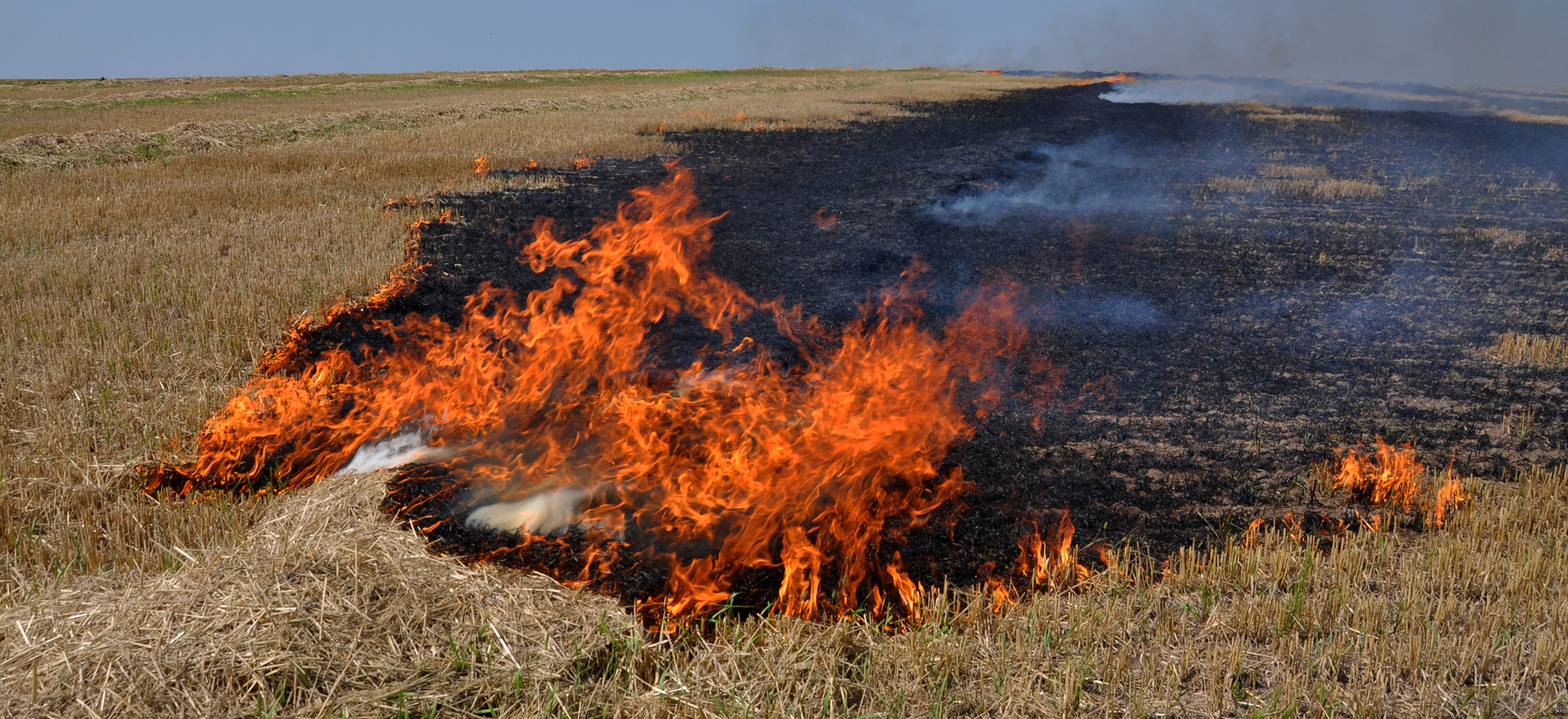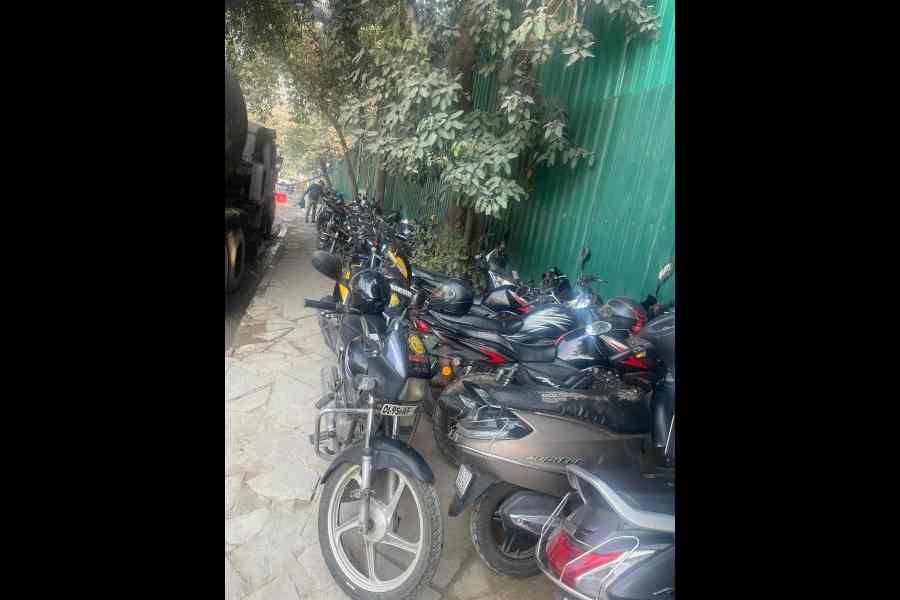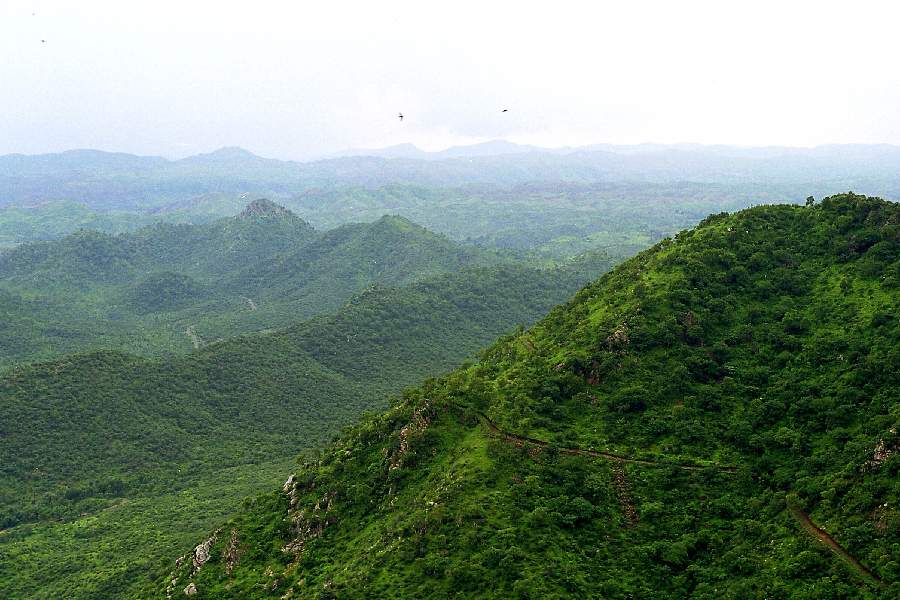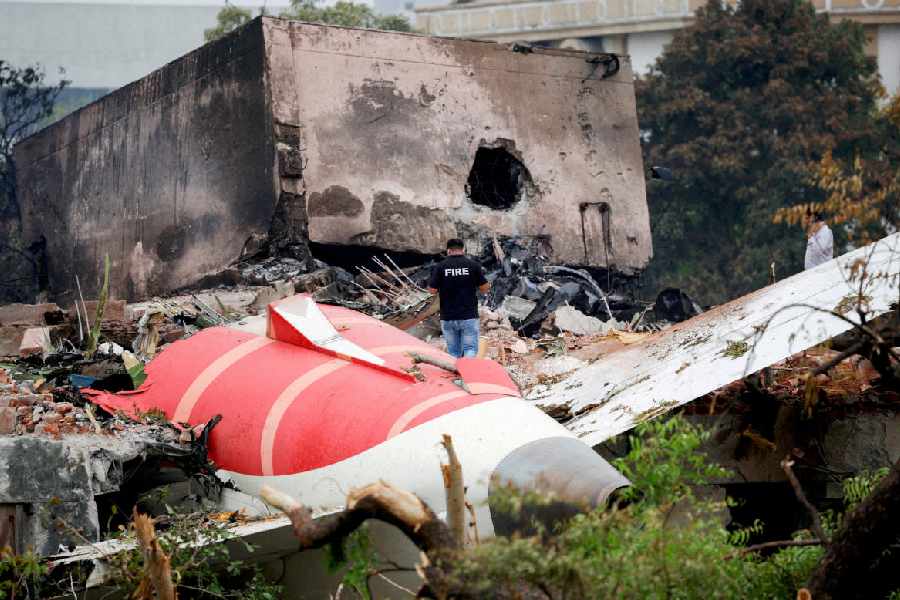The state environment department has banned burning of paddy stubble in fields across Bengal in an attempt to fight air pollution.
The violators are to be prosecuted under the Air (Prevention and Control of Pollution) Act, 1981, and can land in jail.
Burning of paddy stubble in fields, especially after kharif crop is harvested in October-November, is rampant across the state.
Toxic pollutants released in the air because of the burning in districts such as Murshidabad, the Burdwans and Hooghly can drift towards Calcutta with the northerly wind and push up the city’s already high air pollution level.
“...the environment department issues directions under Section 19(5) of the Air (Prevention and Control of Pollution) Act, 1981, to all concerned and general public and hereby prohibits the indiscriminate burning of left-over paddy and straw/stubble in the whole state of West Bengal with immediate effect,” states a notification issued by the environment department on February 8.
The notification states that the “indiscriminate burning... in the open fields after the harvesting of crops is causing widespread air pollution in the whole state....”
Officials said the order had been issued to prevent a situation similar to Delhi, where the level of toxic particulates in the air shoot up to dangerous levels because of stubble burning in the open in adjacent states, especially Punjab.
An ongoing survey by the National Environment Engineering Research Institute on Calcutta’s air pollution has failed to identify the sources of around one-fifth of the toxic particulates.
“We suspect the fumes from the stubble burning in adjacent districts can account for a significant part of the unaccounted for particulates,” an official in the environment department said.
Why do farmers burn paddy stubble in the open?
“After harvesting kharif crop (in October-November), farmers set fire to the leftover straw to prepare the ground quickly for the sowing of rabi crop. In the process they release enormous amounts of toxic particulates in the air,” Kalyan Rudra, chairman of the state pollution control board, told Metro.
“It is quite likely that the northerly wind carries to the city the particulates released from the burning of stubble in West Burdwan, East Burdwan, Hooghly and Murshidabad districts.”
An official in the agricultural department pointed out that paddy stubble had become unusuable since the introduction of the combined harvester, a machine that reaps crop.
“So, instead of removing straw from the fields, a painstaking exercise, farmers prefer to burn them,” the official said.
“It is not easy to stop the trend because manual collection of stubble is not time and cost-efficient. Besides, manual removal of straw can push back the rabi harvest,” he said.
Biswajit Mukherjee, former chief law officer of the state pollution control board, said the notification would remain on paper unless the agriculture department or the panchayats were empowered to act against the violators.










